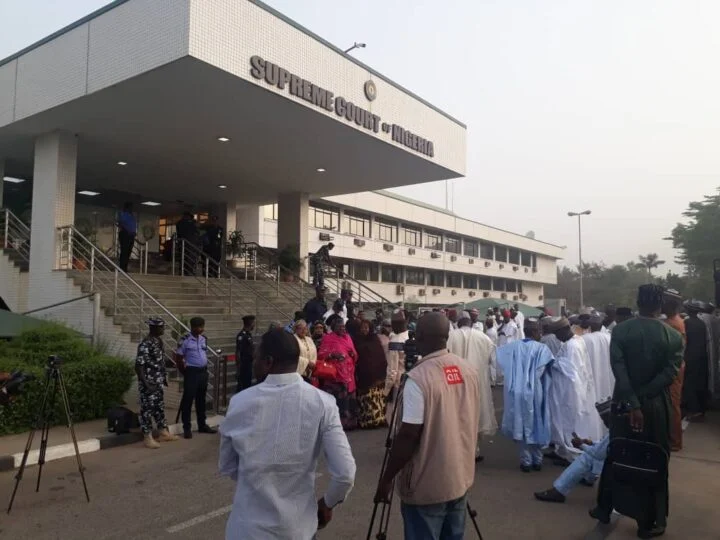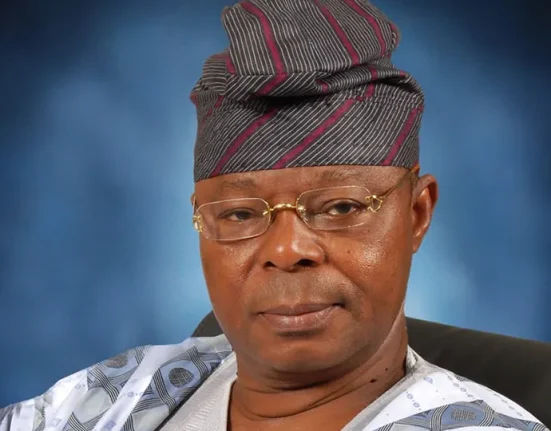Barring any last-minute reversal, judiciary workers under the aegis of the Judiciary Staff Union of Nigeria (JUSUN), Federal High Court Chapter, are set to begin an indefinite nationwide strike today, Monday, June 2, following a breakdown in negotiations with federal authorities over longstanding welfare demands.
Despite interventions from several quarters, including a late-night meeting with the leadership of the Department of State Services (DSS) on Sunday, the union resolved to proceed with the industrial action, citing a lack of meaningful progress in discussions. The high-stakes meeting, which lasted over four hours and involved the Director General of the DSS and the agency’s Director of Operations, failed to yield a compromise that could avert the imminent shutdown of federal courts across the country.
A senior JUSUN official, who spoke under condition of anonymity, confirmed that the strike will go ahead as scheduled. According to the source, “Even though the Supreme Court and the National Judicial Council have opted out, our position remains unchanged. We met with the DSS leadership, but unfortunately, the dialogue ended without a resolution.”
It was further gathered that the Chief Justice of Nigeria, Justice Kudirat Motonmori Kekere-Ekun, has summoned an emergency meeting of key stakeholders, including DSS representatives, to explore possible ways of defusing the crisis. However, union leaders insist that until new directives are issued, all workers under the Federal High Court system are to down tools and stay away from duty posts.
Confirming the development, Comrade Mohammed Isah, Secretary of the Supreme Court Chapter of JUSUN, issued a statement on Sunday, clarifying that while further engagement is expected on Monday, union members should observe the strike pending further instructions. He noted that a separate meeting will be held, but workers are to remain at home as part of the collective action.
The strike is being driven by the federal government’s failure to meet a range of agreed obligations, including the payment of five months’ arrears of the wage award, implementation of the proposed ₦70,000 national minimum wage, and the enforcement of a 25% to 35% salary increase that had previously been promised.
A circular dated May 30, 2025, signed by the union’s Public Relations Officer, Mr. Gideon A. Maku, indicated that the impasse with the Minister of Labour and Employment was the final straw that compelled the union to activate the strike directive. “All members of staff are hereby directed to remain at home until further notice,” the memo stated in clear terms.
However, in a contrasting stance, the Supreme Court Chapter of JUSUN announced its withdrawal from the strike action. In a communiqué issued on May 31 and endorsed by 12 members of the chapter’s executive, including Comrade Danladi Nda Y., Comrade Bala Sambo, and Comrade Comfort Ataghar M., the group cited the peculiar administrative structure and sensitive operations of the apex court as justification for non-participation.
They also commended the proactive efforts of the Chief Justice of Nigeria in addressing their concerns, stressing the need for a more context-specific solution rather than a blanket industrial action.
Despite the apex court’s non-involvement, judiciary workers at the Federal High Court level and across other subordinate courts appear undeterred, raising fears of widespread disruption in the judicial process nationwide. Legal stakeholders are already expressing concern over the implications of the strike, which could stall court proceedings, delay judgments, and complicate ongoing litigation across the federation.
As the situation unfolds, all eyes remain on the outcome of fresh negotiations expected to be convened under the leadership of the CJN, with hopes that an amicable resolution can still be achieved to forestall a prolonged paralysis of Nigeria’s justice system.







